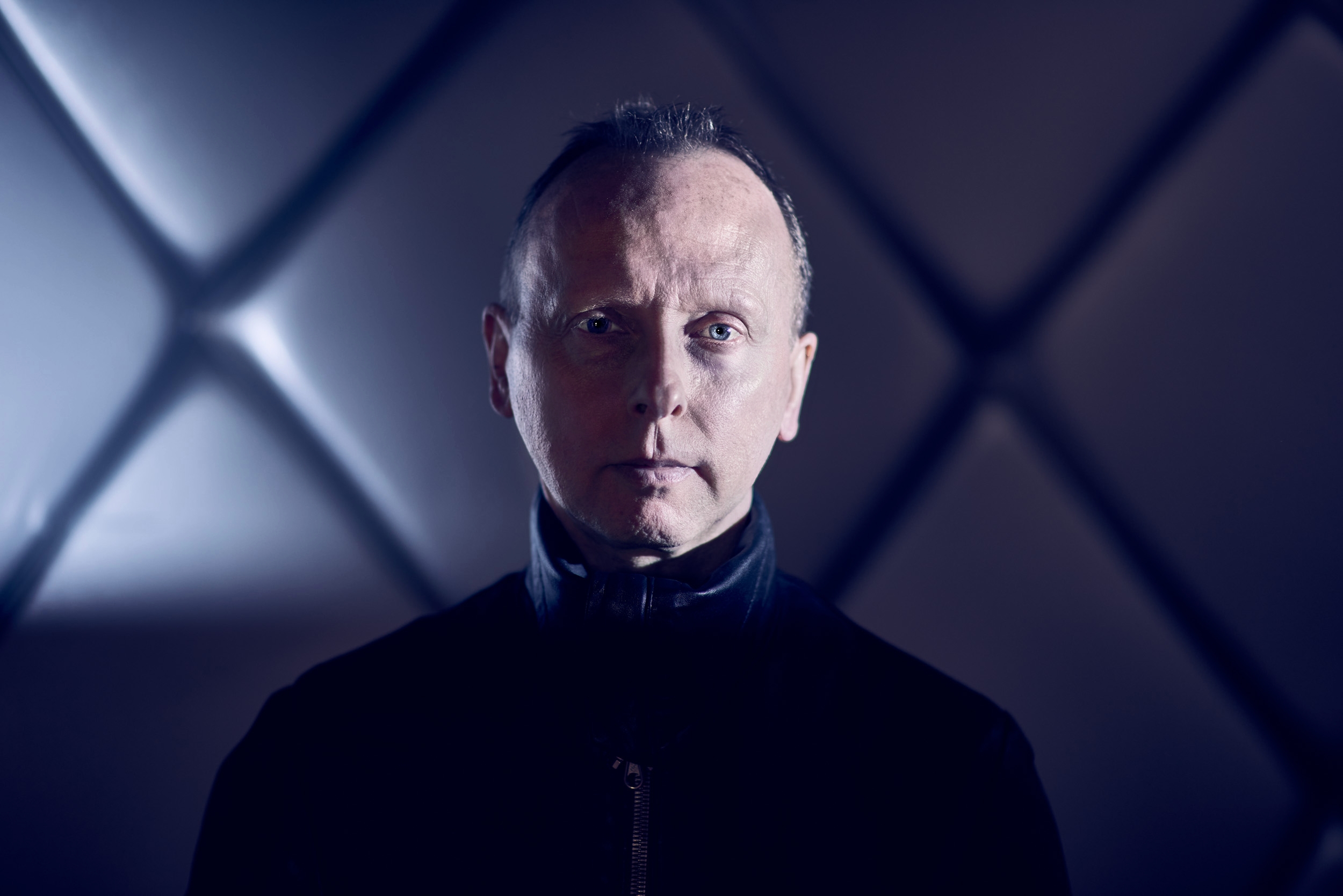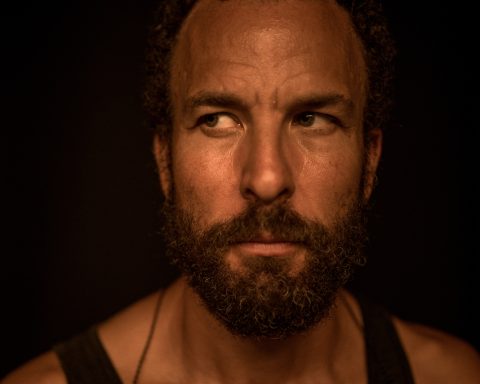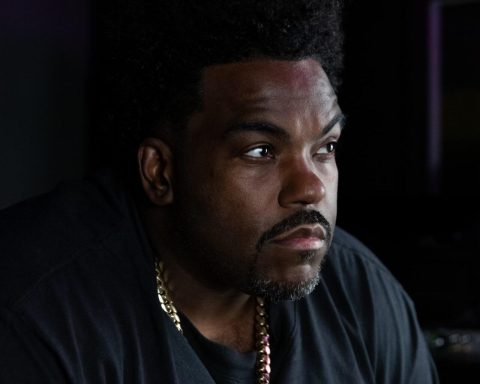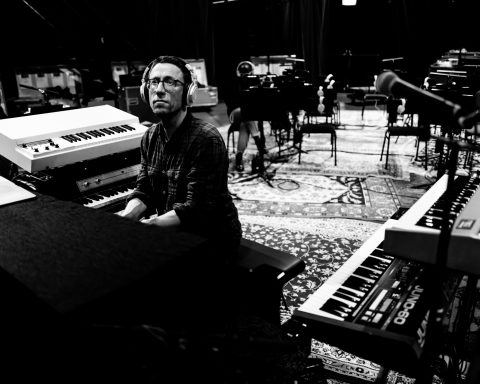“I knew what I wanted to do from the earliest age,” Robin “Scanner” Rimbaud says. “It was to work in the arts and share my time and ideas with others, not to follow any traditional routes.” Indeed, he’s done that and more. With a prolific output and no signs of slowing, Rimbaud creates unpredictable music and sound installations. As a composer, artist, and sound designer, Scanner explores myriad genres—from avant-garde to accessible.
Future Past Evolution
It all started by tinkering around with tape machines to capture radio waves. “As a teenager, making things happen was a catalyst,” the artist recalls. “You set up the goalposts for things to happen.”
In the ’80s, Rimbaud began intercepting police scanners, radio waves, and other signals to record and manipulate. “When I got the first S1000, my life changed,” he recalls. “I had a cassette recorder. It was an ordinary monophonic Binatone Portable Cassette Recorder—the big fat five-button thing.” His next acquisition created a major shift for the budding producer. “I got a reel-to-reel. Suddenly, you could play a sound and time travel.”
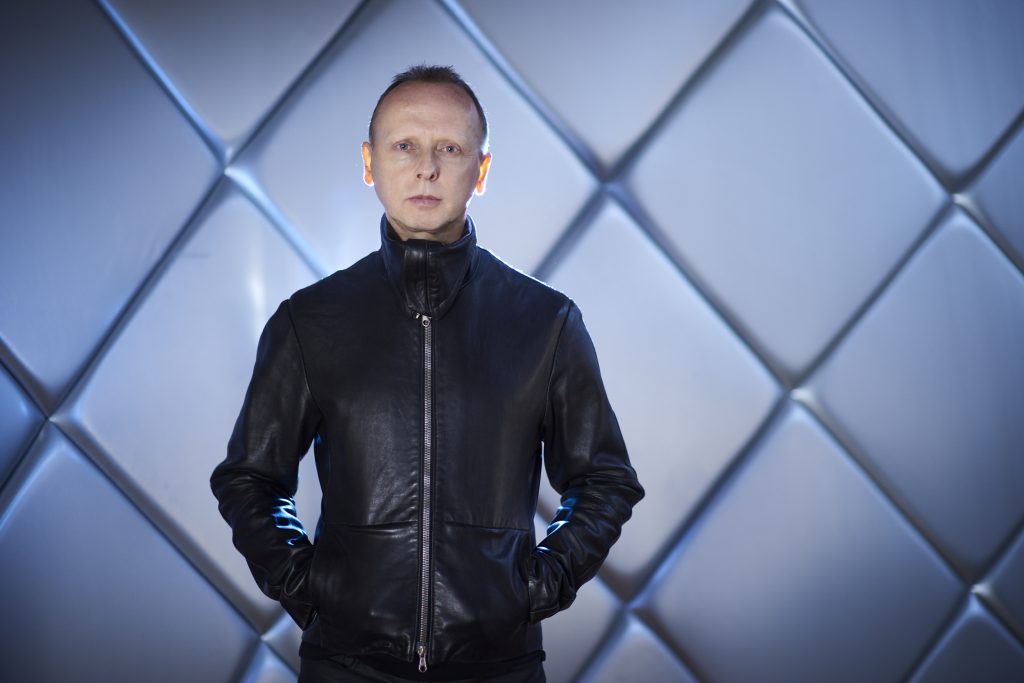
"I got a reel-to-reel. Suddenly, you could play a sound and time travel."
A Career Begins
Featuring signals as instruments, his debut, Scanner 1, appeared on London’s Ash International imprint. Since then, Rimbaud continues to evolve his approach. Over the ensuing decades, he’s composed, produced, and released nearly 40 albums.
Rimbaud’s performances, installations, and recordings continue to grow and reach new audiences. Critics laud Mass Observation, Delivery, and An Ascent as essential contemporary electronic music. Musicians perform his works in institutions like Pompidou Centre, Tate Modern, and the Bolshoi Theatre.
The Creative Process
Though audio is essential to his process, visual arts, literature, and film also play significant roles. In fact, inspired by the works of Marcel Duchamp, Jean-Luc Godard, and others, Rimbaud attends more art exhibitions than concerts.
“Recently, I visited a retrospective of the French artist Jean Dubuffet in London,” Rimbaud shares. “He championed the idea of the poetry of everyday life. Every room in the demonstrated what a variety of voices he had.”
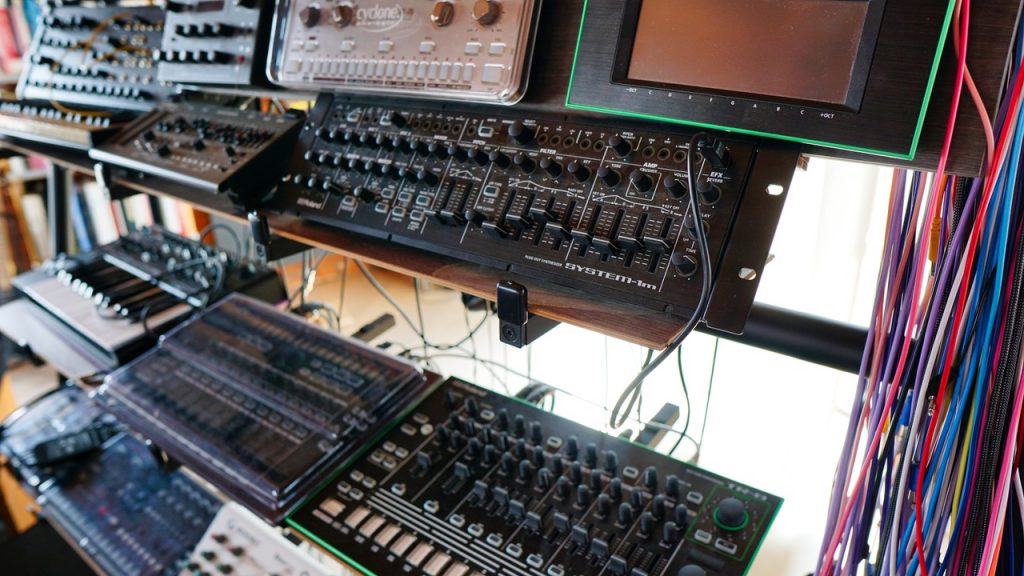
A Studio Full of Possibilities
Incorporating new instruments and techniques helps him push boundaries in his art’s evolution. To that end, Rimbaud possesses an extensive collection of studio devices. These range from software processors and guitar pedals to sequencers and mono synths.
“I’ve used a lot of Roland gear over the years and continue to do so. The JV-1080 appears often throughout my work,” he says. “I also love the SH-01A—a beautifully made, compact, and inspiring machine.” He also praises Roland’s software synthesizers. “Roland Cloud is an essential tool, offering a wealth of possibilities wherever I am.”
The Power of Partnership
During his career, Rimbaud has worked with artists like Bryan Ferry, Laurie Anderson, and Wire’s Colin Newman. “I am a consistent collaborator. It teaches the respect of space.”
On commissions and collaborations, Scanner is clear about how he approaches each concept. “Mostly, I occupy the position known as ‘the risk factor,’” he says. “The commissioner does not have particular expectations, more an awareness of the thrill of the unknown.”
With that in mind, he explains his process in further detail. “Collaborators share ideas that present a mood or texture, tension, or drama,” Rimbaud reveals. As a matter of fact, working with other artists is of benefit to the finished product. “This helps sculpt the shape the final work should take.”
Tragedy and Reinvention
He acknowledges that the difficulties of the global pandemic affected artists deeply. On the other hand, the downtime provided a silver lining. “The last year has been grim for many people, but I felt fortunate I have the means to keep creating.”
At the same time, Rimbaud has experienced significant personal tragedies in the recent past. “In the last eight years, I lost my entire family,” he shares. “What it teaches you more than anything is how fortunate you are to do these things at times.”
"Collaborators share ideas that present a mood or texture, tension, or drama. This helps sculpt the shape the final work should take."
A Community of Supporters
In the time of COVID-19, creators are connecting with listeners in new ways. Rimbaud engaged his audience and created an improvised performance. Titled, “Live From The Factory,” it broadcasted on March 21st, 2020. Rimbaud created the one-off to launch the Scanner Bandcamp Fan Club.
“This subscription supports my work and new material,” he says. For £5.00 per month members of the Scanner Bandcamp Fan Club receive every new release. In addition, they get unreleased recordings and more from the archives. “That’s the wonderful thing music can offer,” he explains. “The ability to make things that store memories and tell stories to move and engage people.”
The Professional Perspective
Rimbaud is adamant about the motivations behind his work. “Success for me is not measured in sales numbers, audience size, or social engagements, but personal contentment,” he affirms.
Does he have strategies to pass on to aspiring artists? “Find your voice creatively,” he says. “Work towards a sonic palette that reflects your vision. Take risks, push yourself, and don’t follow any rules.”
As an advocate for modern modular synthesis, Rimbaud offers advice to those getting started. “Consider the music you’re interested in making,” he offers. “Is it experimental, techno, ambient? This can help refine choices of what modules might work best.”
"Work towards a sonic palette that reflects your vision. Take risks, push yourself, and don’t follow any rules."
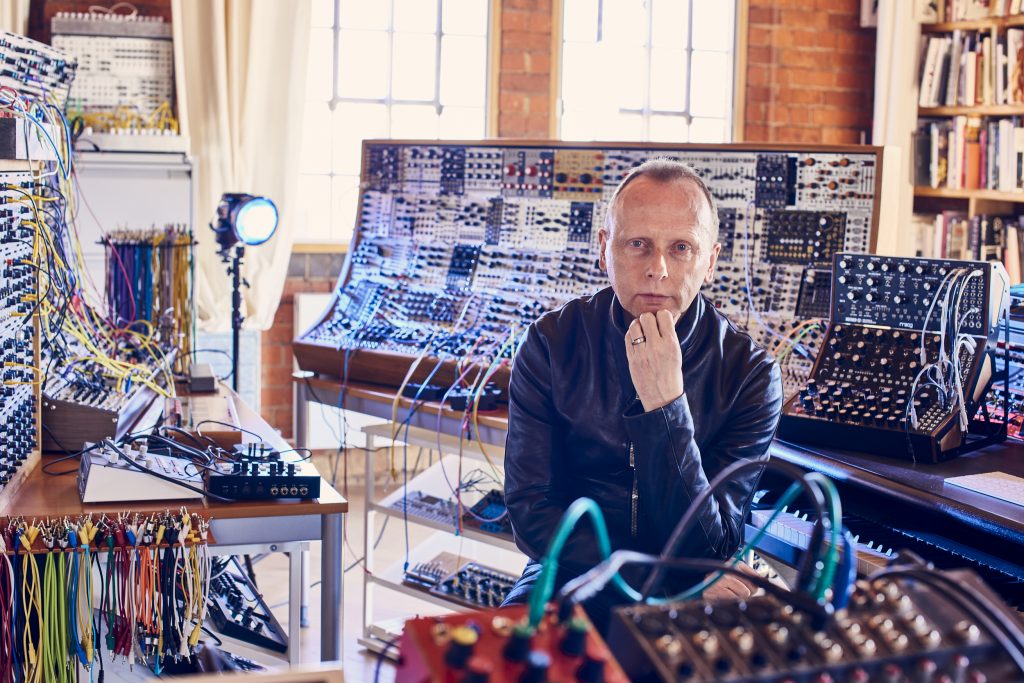
Future Intense
As we move forward, Rimbaud looks forward to exploring the world, making friends, and visiting new places. “Not that lockdown stopped me creatively,” he says. “I recorded eight albums last year—some solo and others in collaboration.”
Currently, he’s working with an ensemble for performances of Karlheinz Stockhausen’s work in Europe. Simultaneously, he’s scoring a new dance work entitled Skiagraphia and releasing tapes from the 1980s on the label Room40. “As ever, it will be a mixture of works that reward personally and globally—that focus on small moments and bigger things that affect us all.”
"When I slip away to another planet one day, my building complex will be a creative base for young creatives."
He’s also established the Robin Rimbaud Art Foundation. It aims to leave Rimbaud’s complex—a textile factory an hour outside London—to future generations. “All the money I make goes back into the building to maintain it and support others in the future.” Ultimately, it’s about art. “I set it up to support young creatives. When I slip away to another planet one day, my building complex will be a creative base for them.”
